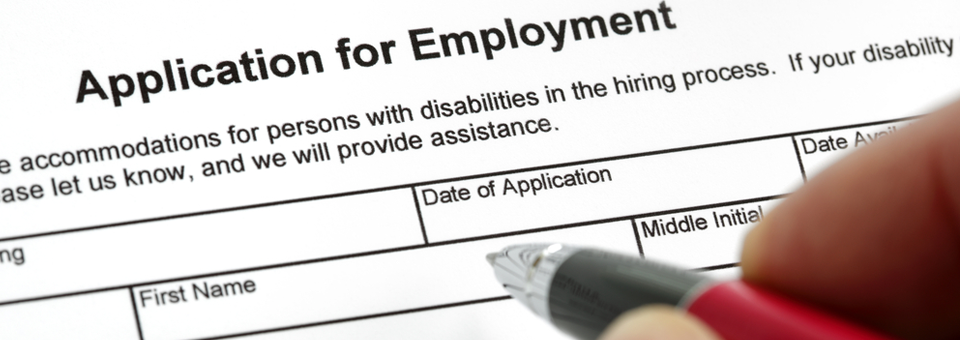4 reasons you don't get feedback on your job applications
It is every jobseeker's dilemma: Why haven't I heard from the company I applied for? You read through the job posting and consider yourself a near-perfect fit to the available position. You have experience and skills that match the requirements written on the ad. Your cover letter and resume have been edited and re-edited a hundred times. You followed the submission process, hit send, and wait. And wait.
Unfortunately for jobseekers, there has been a rising trend among companies to not respond to applications. But wait! Before you grab your pitchforks and head off to Ayala Avenue, Ortigas, or BGC with placards in tow to defend job applicants' rights, let's see where the other side is coming from.
1. Most feedback has legal implications
A lot of specific feedback can put employers in hot water. With people getting more politically correct and aware of their rights, anyone giving feedback needs to confine it within legal implications or face potential liability. This means they cannot be too honest without considering the possibility of being sued for discrimination or reported to the DOLE for "unjust hiring practices". Then, there is the danger of an applicant lashing on social media because he thought the feedback he received was unfair.
2. A candidate may not possess some "intangible" factors
Even if a candidate is "perfect" on paper and did amazingly during the application process, another candidate may have the "intangibles" that gives him the edge over the others. These include likeability, confidence, and better answers to interview questions, among others. Telling a candidate that someone else got the job because he sounded less confident or gave a less stellar answer to a question that was asked to all candidates would make the employer look arbitrary and biased.
3. Hiring a candidate is ultimately a team decision
Even if the final interviewer was that close to offering you the job on the spot, what if the HR manager favored another candidate? The final decision on who would be hired rests on many opinions "“ the direct supervisor, the HR manager, the initial interviewer, the final interviewer, and even one or two more people. It would be very awkward to tell a candidate that the company went with another because he only got two out of fives "votes", for example. The tendency would be for the spurned candidate to ask who among those involve did not go for him, which would prompt further awkwardness, and even animosity.
4. Recruiters are constantly subjected to time constraints
People involved in recruitment do not follow up or send feedback basically because they do not have enough time. For example, with 100 applications for one vacancy, it can be overwhelming to provide feedback to the 99 who will not make the cut. Answering them one by one would require a dedicated person to solely do that.
[caption id="attachment_5063" align="alignleft" width="300"] 
So, what do you do if you don't hear anything from employers? Don't be disheartened, don't take it on those companies that didn't follow up, and most of all, don't let the experience hinder you from pursuing other potential opportunities. Make a checklist of everything you experienced so you can see how far you went for each application. By doing this, you would also be able to pinpoint areas for improvement so that you can do better the next time and have better chances of getting feedback.
Moreover, we at JobStreet.com are working doubly hard to provide solutions that should improve your job application experience. Once you apply through us, you can check the status of your appication by logging into your account. There, you will see whether the employer has not yet acted on your submitted application, has already viewed your resume, is putting you under consideration, or has unfortunately rejected your application. Also, we encourage our partner companies to place the average amount of time it takes for them to process applications on their ads. This aims to set your expectations as a jobseeker to reasonable levels "“ you would be able to motivate yourself to wait just a little bit longer as the company you are applying for takes quite a while to process applications, or push yourself to move on if you still haven't heard from them past their average processing period.
Follow our Facebook page for more insightful perspectives on career hacking and the latest employment trends.
About JobStreet.com
JobStreet.com is a leading online job board presently covering the employment markets in Malaysia, Singapore, Hong Kong, Thailand, the Philippines, Indonesia and Vietnam. JobStreet.com currently services over 230,000 corporate hirers and over 15 million jobseekers in its database.
About SEEK Asia
JobStreet.com and jobsDB are part of SEEK Asia, which is the leading online employment market place in Asia. SEEK Asia covers 7 countries namely Hong Kong, Indonesia, Malaysia, Philippines, Singapore, Thailand and Vietnam.
SEEK Asia is the extension of the Australian Securities Exchange listed company called SEEK. The company's purpose is to help improve people's lives through a better career. SEEK Asia's database consist of over 500,000 corporate hirers and over 24 million candidates.
For more information about this article, or to schedule an interview with JobStreet.com Philippines, please call Mark Nichol Turija, Content Marketing Specialist, at 286-6222.

